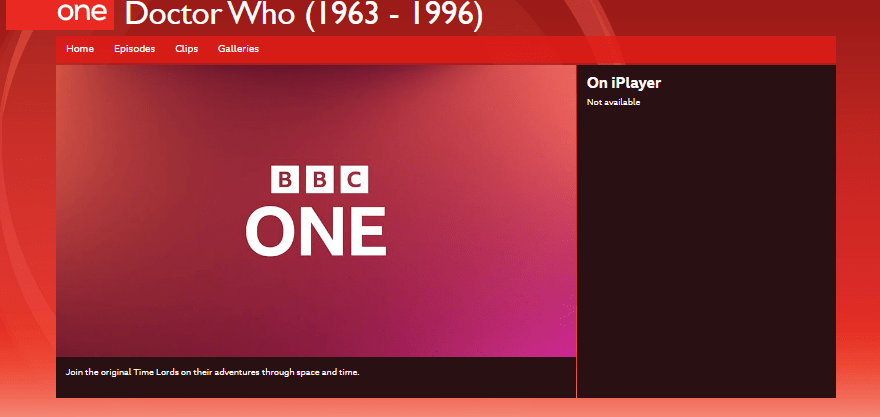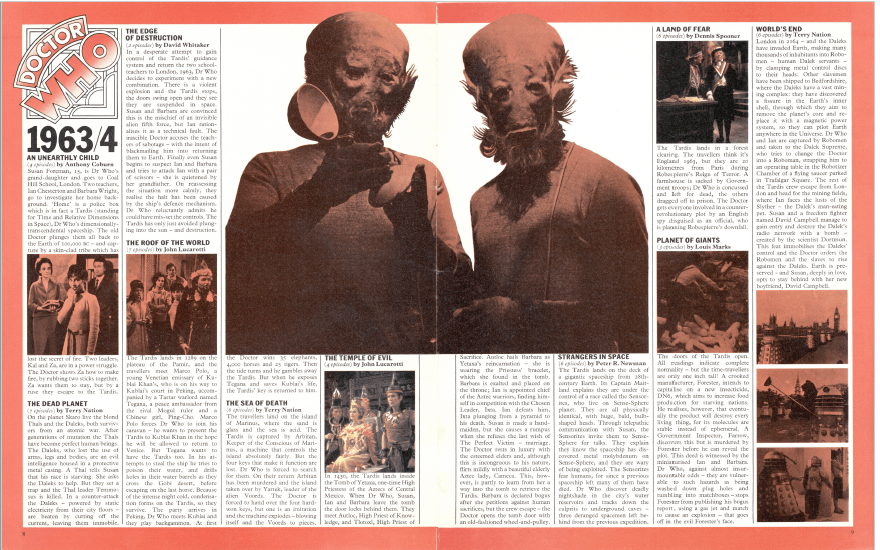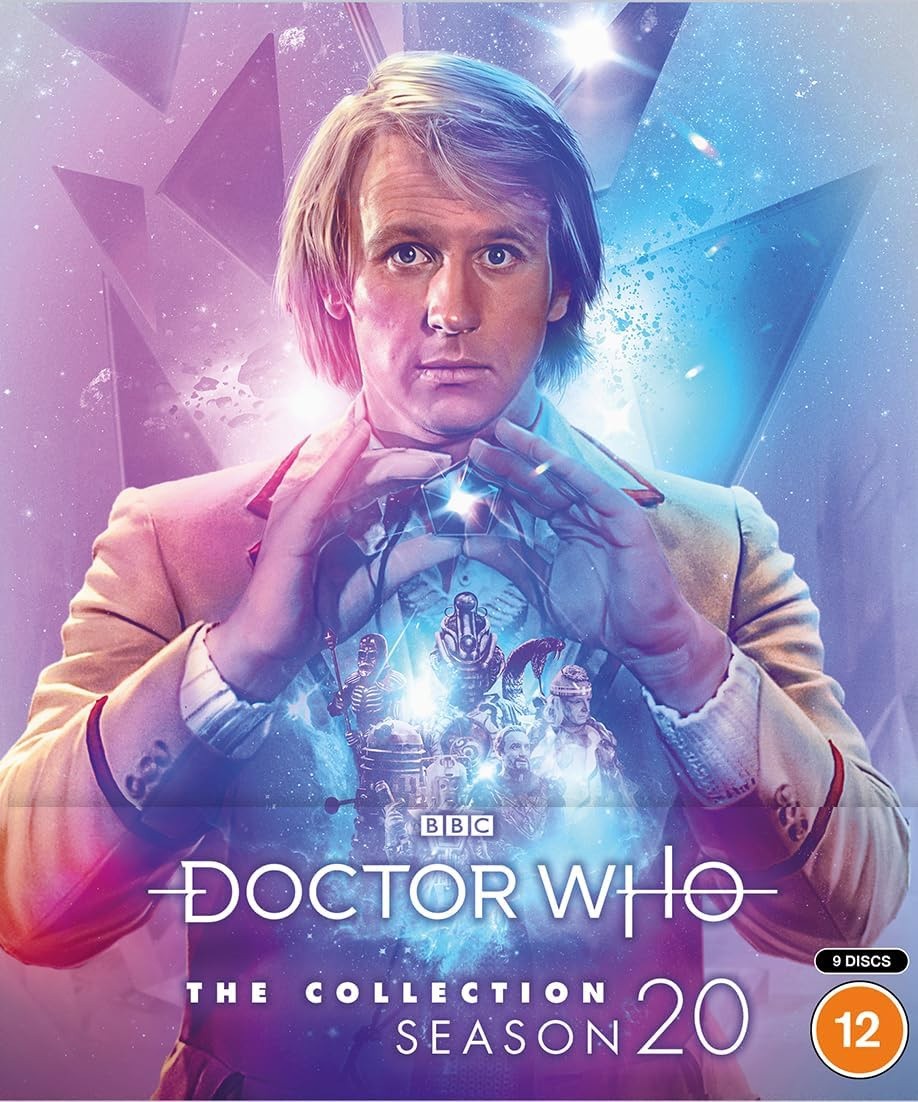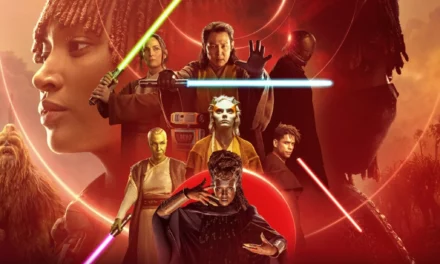So… the other day (which I’d better specify as being 10 October 2023 which is in my past already, but you’re reading this at some date in the future, and I’m not there yet because I’m also in the past, but not as far back as 10 October 2023), this very exciting press release went up on the BBC Media Centre website:
60 Years of Doctor Who drops on BBC iPlayer alongside landmark online archive
Over 800 episodes of Doctor Who programming on BBC iPlayer and every episode will now be available with subtitles, audio description, and sign language for the first time.
The archive invites fans to delve even deeper into the show with curated journeys such as the genesis of Doctor Who, where audio from former Head of Drama, Sydney Newman alongside documents with his original handwritten notes guide you through the origins of Doctor Who.
BBC iPlayer’s back catalogue and the online archive will launch on 1 November before David Tennant returns as the Fourteenth Doctor for three special 60th anniversary episodes.
With over 800 episodes of Doctor Who programming on iPlayer, Russell T Davies, Showrunner said: “I’d like to thank the BBC for all the hard work, to get this massive back catalogue under one roof, at long last. I’m so excited for new viewers – imagine being 8 years old, spending winter afternoons exploring the 60s, 70s, 80s and beyond. And we’re determined this won’t be a dusty museum – we have exciting plans to bring the back catalogue to life, with much more to be revealed!”
The new online archive will launch at bbc.co.uk/doctorwho, so fans of the show can delve deeper into Doctor Who’s history than ever before.
Now, I’m the first to say – and have said previously – that, really, you have a nice academic blog here covering all television across the world, and I really shouldn’t just keep banging on about Doctor Who (1963-whenevs) the whole time because there’s so many other amazing series out there. I mean, it’s not like I’m a proper academic who desperately needs all those citations and with people still writing about the Doctor Who the smart thing being for me to write about Doctor Who as well because then they may well cite me. Or however it works.
Nor do I necessarily feel that I need to write about Doctor Who. Yes, it’s an amazing show that my wife and I still adore after many years and it’s been very important in our lives, but there’s many other places that you can write and – even better – read about Doctor Who. There’s even a magazine devoted entirely to Doctor Who, and – to make it really easy to find – they’ve called it Doctor Who Magazine. Indeed, Russell T Davies – whom you saw quoted in that press release – actually writes more about this initiative in Issue 596. So, y’know, just nip into your newsagents and ask for it by name: “The latest issue of Doctor Who Magazine, if it should please you my good newsvendor.” That should do the trick.
So, if you want to read about any aspect of Doctor Who, off you go – fill yer boots.
Anyroadup… I’m picking on Doctor Who here partly because this release onto iPlayer is doing a whole stack of stuff that I strongly believe in about television in general. It’s also finally got iPlayer to one of those states that I’d dreamed of it being around a decade ago. Some of you who attended the ‘Spaces of Television’ conference at the University of Reading in September 2013 – shortly before Doctor Who’s fiftieth anniversary – may recall the presentation from the BBC’s Head of Archive Development Tony Ageh in which he voiced his frustrations in wanting to use iPlayer to make the whole history of the BBC available to the public… but being aware that he was nowhere near that goal (He also explained why DVDs of 35mm film recordings couldn’t just be doled out to academics for nothing… but that’s another story). And he even got an OBE for his services to digital media! Nice one Tony!

Fig 1: This is what Doctor Who on iPlayer looks like today… but by the time you read this, it’ll be the past. What does it look like now?
One of the reasons that I think that this is such a good move is the fundamental notion of access. This is something that’s changed so much over the years that I’ve been studying television. As I’ve noted before, in the early 1980s you either hoped for retrospective repeat seasons on BBC1, BBC2 or one of the 57 varieties of ITV… or you headed down to the National Film Theatre (or a local affiliate) who might, just might, schedule some archival small-screen wonders for – y’know – the kids, alongside the proper, grown-up pursuit of the very, very, very serious arena of cinema studies. Wider Television Access were there fighting our corner… and I’d like to think that such ventures as what we’re seeing announced here is one of the mighty oaks that’s grown from their tiny acorns.
Just getting to see these things is a start for those who want to take their TV seriously. And according to the BBC bulletin, it’s not just episodes of Doctor Who. It’s all manner of associated programmes. And – again – this is something very important to me. The sheer longevity of Doctor Who is an amazing way of encountering television history and understanding the landscape of broadcasting back through the pre-streaming, pre-digital, pre-stereo, pre-satellite, pre-colour and pre-pre-recorded eras. The lavish Blu-ray sets of the series issued by BBC Studios also play a key role here, crammed to capacity not only with trailers, continuity, contemporary documentaries… but also with thousands of pages of documentation and design paperwork that demonstrate how television was made, promoted and sold overseas. Another outstanding opportunity of the modern age that means a very great deal to me.
So, accessibility to the material and – as such – an understanding of the genre is very important and something that I salute. But I think there’s something else even more important here that I want to celebrate. Something that’s kind of dangerous if it’s not kept in check and used properly. Because it means thinking back to my own personal experiences, and skirting the potentially lethal coastline of nostalgia. And I know that’s a possibly dangerous course to take.
When the iPlayer news broke, my wife and I both experienced the same kind of exciting memory… albeit from ten years apart. We are separated by a decade or so in terms of birth – so I’m remembering 1973 while she’s remembering 1983. And those of you with 16+ maths will know that these were – respectively – the tenth and twentieth anniversaries of Doctor Who. And even back then, this was a big deal. Obviously, we didn’t have iPlayer – let’s face it, we barely had the telephone – but what we did have was the BBC listing magazine Radio Times. And the Radio Times always sort of loved Doctor Who. And in 1973 they loved it so much that on Tuesday 11 December they published 68 pages of colour and delight that chronicled the Doctor’s adventures in space and time, not only up that point, but indeed for the next six months. And nobody that I recall at the time said “Oh no! Spoilers!”
So, 1973… a point at which I’ve been watching this strange little Saturday teatime show on and off for five years and then, for the last two years, seriously mainlining the stuff in any way imaginable. Back in 1963, I wasn’t even around to think about television. And, as such, there was a big gap in my knowledge of my favourite show’s history. Now, every so often I’d have tantalising glimpses at shows made before I was born; as recently as Bonfire Night, Val, Peter, John and Lesley had staged a mini-birthday party for Doctor Who on Blue Peter (1958-hopefully forever) and there’d been some fragments of the show’s past to burn themselves into my hippocampus. And while the Piccolo children’s paperback The Making of Doctor Who (1972) had offered a basic credit listing and brief account of the Doctor’s adventures, this magazine was the first to tabulate – with visuals – the stories in greater detail.

Fig 2: Like this! Isn’t this brilliant! And you can see it too! It’s a PDF on Disc 6 of Doctor Who: The Collection – Season 10.
The problem of course is that it’s 1973 and I know that with only three television channels (four if it’s really foggy and we can get ATV as well) each with limited hours, there’s no way that I’m ever going to see this stuff. I have a lovely list and some nice photos… but that’s it. I mean, those nice people at Target Books have just started to publish novelisations of the television stories so that I can experience the adventures at least in this other medium. And we know how important TV tie-ins are don’t we? So, yes, all I could reasonably hope for was lots and lots more paperbacks…
My wife had a similar experience the same a decade later… but by which time ‘Archive TV’ was at least slowly becoming A Thing. By 1983, unbeknown to me she was learning lists of her own from The Doctor Who Programme Guide (1981) a reference book that – despite many subsequent works – for a vast sector of fandom will always remain the bible for the series… and wasn’t Doctor Who wonderfully over-represented? But 1983 also offered another lavish special from Radio Times. You can find that on Disc 9 of the recently released glory that is Doctor Who: The Collection – Season 20.
Over the next decade, technology meant that one could start to own a small selection of Doctor Who adventures on the modern miracle of videotape, and during the dark days of the Betamax Wars there was at least an opportunity to see these shows on rather expensive pre-records… as well as amassing one’s own off-air archive from BBC1. Again, the show was staggeringly well catered for with special releases of ‘orphaned’ episodes or incomplete serials – an approach repeated as we went digital with our versatile discs and beyond that went all hi-def on Blu-ray. But for the kids, it wouldn’t have been a cheap hobby to keep up because what with the show’s successful revival in 2005 it turned out that there was a helluva of it…
So let’s forget about me and my wife and our combined nostalgia and focus on the here and the now.
As Russell T Davies said in the press bulletin… any youngster (of the age we were then) who’s tuned in over the last few years and joined the Doctor and her fam on their adventures in space and time and is buzzing with excitement at the prospect of a new Doctor hitting the screens for three specials from November and then another Doctor following almost immediately doesn’t have to wait imagining how a BBC Enterprises one-paragraph synopsis might have looked on the screen or waiting for anyone to invent the binary tech of the DVD. Assuming that their legal guardians have stumped up the annual licence fee, they’ll be able to just start immediately on one of the most amazing television back-catalogues. Streamed directly for them on iPlayer. Jumping in at any point and just being totally thrilled by this amazingly strange little show.
How wonderful!
For some of them, they’ll love the show for a few years… and then move on. For others, they’ll be hooked for life. And a few may be writing stuff on a blog like this in years to come. And that’s still a great joy for me in knowing that people have sometimes come across a show that’s new to them and fallen in love with it… particularly if it’s months, years, or decades after it first appeared. So, again, the thought of so much Doctor Who being available to pleasurably fill a gap in their lives after they’ve done their homework and household chores – day-to-day obligations which they’ve performed that little bit faster because they want to leap aboard the TARDIS again as soon as possible – is also a very lovely one.
And – yes – it’s Doctor Who again. But it’s what led me – and I suspect a few others – into all this TV stuff in the first place… and also still a wonderful way to demonstrate a lot of the major thoughts that flitter across my synapses regarding how we look at the small screen.
So, absolutely… another piece on that most written about of shows: Doctor Who. Now available to all. What other show deserve stuff on this sheer scale?
And, let’s face it, there’s another very good reason for it beyond all those above.
After sixty years, it’s still brilliant. And still so much fun.
Happy Birthday Doctor!
Andrew Pixley is a retired data developer. For the last 30 years he’s written about almost anything to do with television if people will pay him – and occasionally when they won’t. In recent months, various circumstances have made writing less easy than previously and his confidence was a bit dented. But then a nice man whom he’s never met was kind enough to spend a few minutes on a very busy day to help him get some of his confidence back… so, y’know, he’d better not let him down now…





